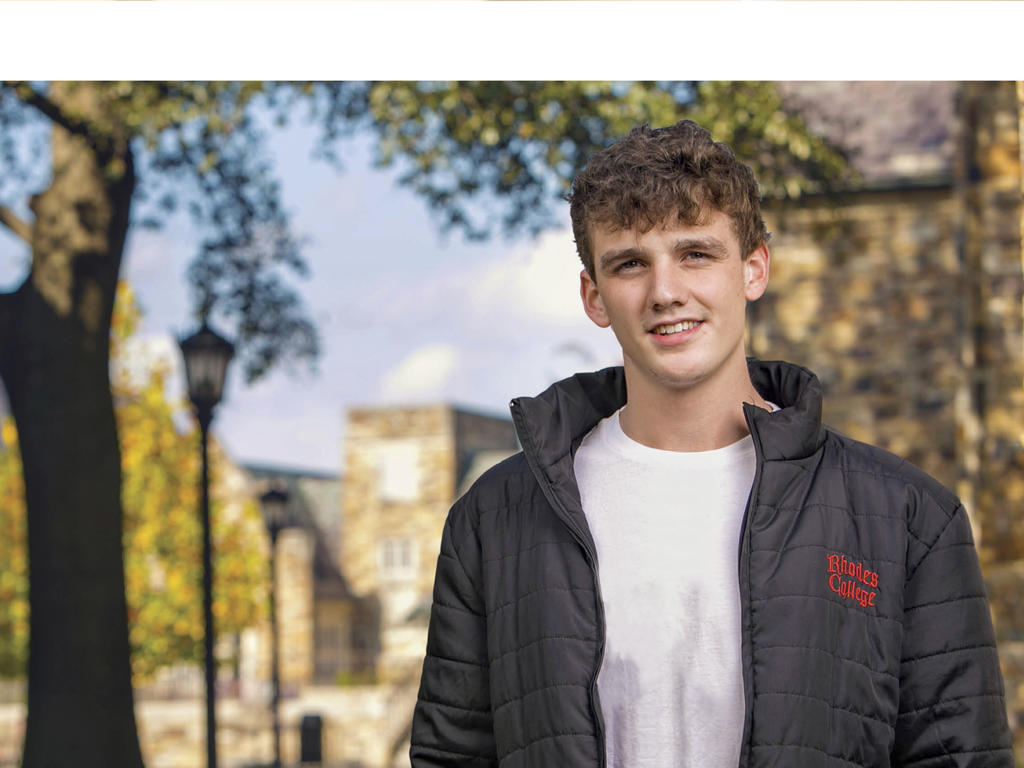Hometown: Memphis, TN
Major: Computer Science
Minor: Business
Extracurricular Activities: Clarence Day Scholar, Pi Kappa Alpha, Cache Money Programming Team
Thomas Threlkeld ’16 came to Rhodes thinking he would be a business major, but his life took a dramatic shift when he took an introductory computer science course his sophomore year. After that, he found himself taking more and more computer science courses. At the end of his fall junior semester, he decided to make it official and switched to a computer science major.
Last summer, Thomas, a Clarence Day Scholar, founded a coding camp for local middle school girls. Called Camp Codette, it was funded by the Clarence Day Foundation and Google. The Day Foundation provides Day Scholars with $5,000 to create a program of outreach for Memphis. “Initially, when I was a business major, I thought about creating a financial literacy course for high school students, talking about the loans that they would take out for college and such. When I switched to computer science, I decided I wanted to use the $5,000 for some sort of camp or coding school.” Even with the Day grant, it would be tough to buy the necessary equipment for such an ambitious project. But his advisor, Professor Betsy Sanders, whose help and advice Thomas credits with ensuring the project’s success, came to the rescue. “She emailed me an application for the Google Ignite CS grant, which provided up to $10,000 to pretty much do exactly what I was thinking about doing.”
“I wrote up the application right before the deadline on January 17th, including budgeting all $15,000 down to the penny, after only having the idea for the camp for a few weeks. In fact, I think I ended up submitting at 11:57 pm, right before the deadline.” Two weeks later, Thomas found out he had been accepted.
With the grant, Thomas was able to buy all of the equipment for the camp. This included computers and robots, among other necessities. He was also able to hire staff to help with the workload. “I also used it to travel to a few places and attend conferences. I was jumping into this with almost no idea how to teach kids, so I went to a bunch of computer science conferences and learned much more about the discipline.” Additionally, as part of the grant, Google required Thomas to attend a meeting with the other nine nationwide grant winners to talk about their individual programs. “Google had us all get in a room together, talk about our experiences, and also share our results.” As a whole, the trip to Google was one of the highlights of the summer. “The company was amazing. The CEO has a slide that goes from his office to the first floor, they have amazing 5-star chefs working there—it was incredible. We were allowed to visit the Google X facility, where they develop delivery drones and self-driving cars. We weren't even allowed to bring pencils and paper in there, let alone our phones.”
The camp itself was a challenge. “While I was lucky to have the grant, I was still heading into the camp not really knowing how it would all work out. Luckily I had learned a lot when I went to those early conferences.” After those trips, Thomas started building the curriculum for the camp. He chose to cater the camp towards middle school girls because of the huge gender gap within the computer science field, combined with the fact that job opportunities within the field are growing exponentially. “I picked the middle school age because it’s right before they get sucked into the chaos of high school, and I wanted to get them interested in the STEM fields early.” The camp focused on app development, 3D printing, and robotics. In addition to founding and running the entire camp, Thomas also taught the robotics and app courses. Keely Hicks ’16, Chelsey Thompson ‘15, Elizabeth Zak, Lily Gray, and Haley Adams ’15 worked the camp and helped Thomas run it. Says Thomas, “The camp wouldn’t have happened without them.”
Overall, they had roughly 70 campers split between the three sessions, and, he says, “It all went off without a hitch.” Next summer, Thomas is hoping to expand Camp Codette to new fields such as virtual reality, which is also a particular research interest of Professor Sanders. However, the camp will most likely be under new leadership, as he graduates this spring.
Most recently, Thomas, along with Will Cobb ’18 and Luke Dulske ’18, won the overall prize in the RhodesHack 0 competition for the development of an iOS app that, among other things, allows musicians to find other local musicians to practice with. Looking to the future, Thomas has already started applying for jobs at Apple, Google, Microsoft, Facebook, and Oculus Rift, as well as some newer startups such as Enlitic, which works in machine learning and helps doctors analyze data.
by Sam Clark '17
